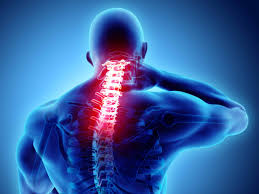- Published Date: 12-03-2025

Recovering from an orthopedic injury or surgery is a journey that involves patience, discipline, and most importantly, effective pain management. At , we understand that managing pain is not just about temporary relief, but about empowering patients to heal better, faster, and with minimal discomfort. Whether you're recovering from a ligament tear, joint replacement, or sports injury, knowing what to expect during your recovery can help you navigate it with more confidence.
Pain is your body’s natural response to trauma or surgery. While some level of discomfort is expected, prolonged or unmanaged pain can hinder recovery, affect mobility, and lead to complications such as muscle stiffness, sleep disturbances, and even mental fatigue. That’s why the right pain management strategy is essential to support healing and improve quality of life during the rehabilitation process.
Pain during orthopedic recovery often follows predictable stages:
Every patient’s pain tolerance and recovery path are different. At Noida Sports Injury Center, we use a multimodal approach tailored to your condition, medical history, and personal comfort. Here’s what our pain management plan typically involves:
1. Medications
2. Cold and Heat Therapy
3. Physical Therapy
While movement might sound painful, physiotherapy is crucial in orthopedic recovery. Our certified therapists guide patients through gentle stretches, muscle strengthening, and joint mobility exercises—all within pain-tolerant limits. Early mobility not only reduces stiffness but also speeds up healing and prevents secondary complications.
4. Ultrasound and Electrical Stimulation
These are non-invasive techniques that help in:
Our rehab facility is equipped with the latest modalities to provide effective support throughout your recovery.
5. Guided Breathing and Relaxation Techniques
Pain is not just physical—it affects mental well-being too. We encourage patients to use relaxation techniques such as deep breathing, meditation, and mindfulness to manage anxiety, improve sleep, and reduce the perception of pain.
6. Nutritional Support
A balanced diet plays a role in recovery. We provide dietary recommendations rich in anti-inflammatory foods, essential vitamins, and proteins to support tissue repair and energy levels during rehabilitation.
7. Patient Education and Monitoring
Educating patients about the type and cause of their pain fosters better cooperation with treatment. We also monitor your progress closely, adjusting pain management plans as needed to ensure optimal results.
While some pain is expected, you should immediately consult your orthopedic specialist if:
Orthopedic recovery doesn’t have to be a painful process. With expert guidance and a structured pain management strategy, you can recover faster and more comfortably. At Noida Sports Injury Center, our goal is to provide holistic, personalized care that supports your physical and emotional well-being throughout your recovery journey.